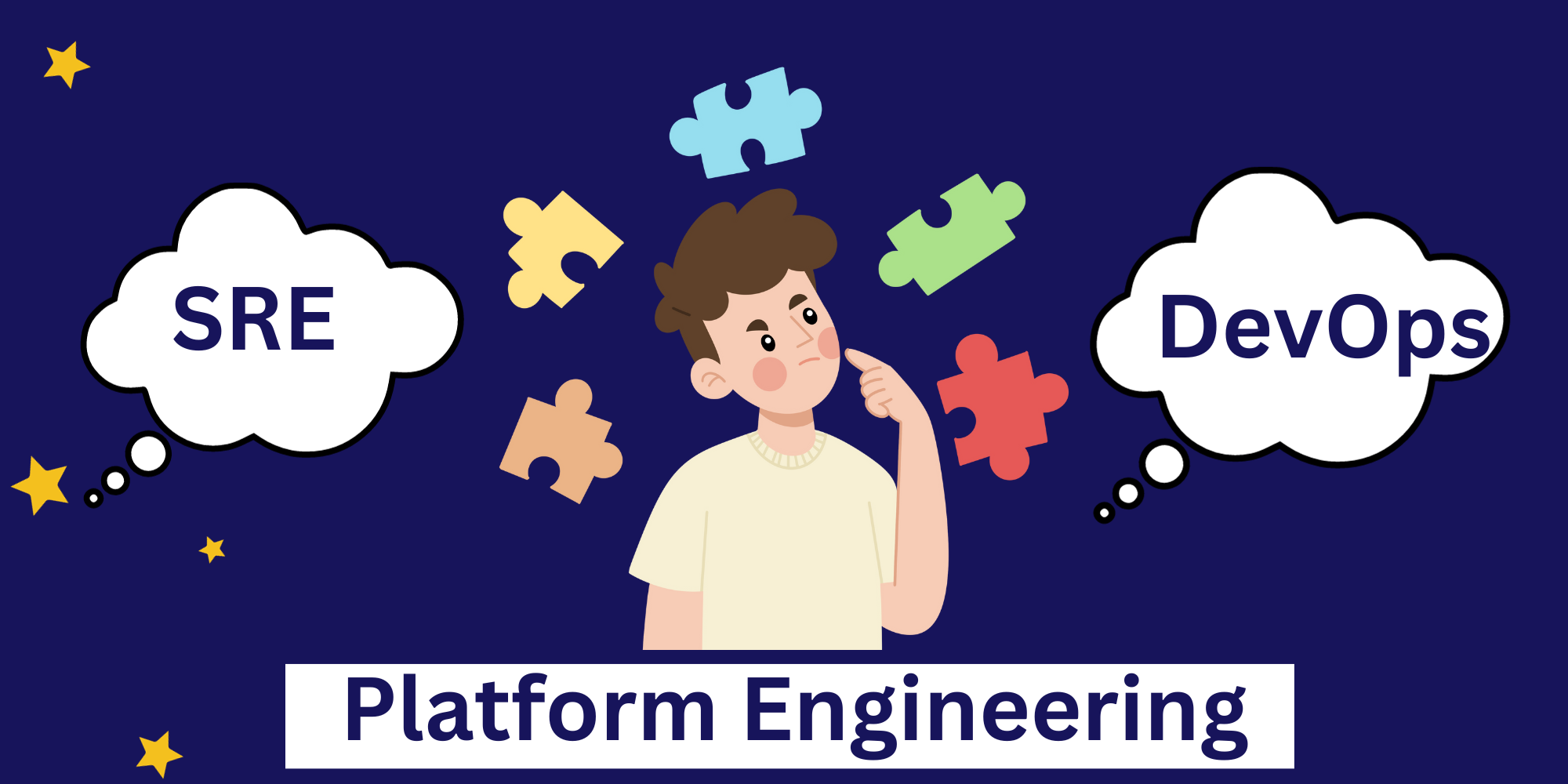SRE vs Platform Engineering vs DevOps


In recent years, the fields of Site Reliability Engineering (SRE), Platform Engineering, and DevOps Engineering have emerged as critical roles in modern software development. While all three roles share some similarities and overlap in responsibilities, there are significant differences that set them apart. In this article, we’ll explore the main differences between SRE, Platform Engineers, and DevOps Engineers, including their job responsibilities, goals, and tool-sets.
Site Reliability Engineering (SRE)
Site Reliability Engineering (SRE) is a discipline that aims to improve the reliability, availability, and performance of software systems. SRE teams are responsible for ensuring that software systems are running smoothly and that any issues that arise are resolved quickly and efficiently. SREs are typically responsible for monitoring, troubleshooting, and maintaining the infrastructure and applications that support a software system.
The primary goal of SRE is to ensure that the software system is always available to users. To achieve this goal, SREs focus on automating tasks, monitoring system performance, and implementing best practices for reliability and availability. SREs also work closely with developers to ensure that software is designed with reliability and availability in mind.
Some of the key responsibilities of SREs include:
- Monitoring system performance and identifying potential issues before they become problems.
- Designing and implementing systems to improve performance and availability.
- Conducting incident postmortems to identify areas for improvement and prevent future incidents.
- Troubleshooting issues that arise in the system, including outages and performance problems.
- Automating repetitive tasks to reduce manual workloads and improve reliability.
SREs typically use a variety of tools and technologies to achieve their goals, including monitoring and alerting tools, automation tools, and configuration management tools. They also typically have a deep understanding of system architecture and are skilled in programming and scripting languages.
Platform Engineers
Platform Engineering is a discipline that focuses on the design, implementation, and management of software platforms. A software platform is a set of tools and services that enable developers to build and run applications. Platform Engineers are responsible for ensuring that the platform is reliable, scalable, and easy to use for developers.
The primary goal of Platform Engineering is to provide a stable and consistent platform that developers can use to build and deploy applications. To achieve this goal, Platform Engineers focus on designing and implementing systems that are easy to use, scalable, and reliable. They also work closely with developers to understand their needs and ensure that the platform meets those needs.
Some of the key responsibilities of Platform Engineers include:
- Designing and implementing systems that enable developers to build and deploy applications quickly and easily.
- Ensuring that the platform is reliable, scalable, and easy to use.
- Working with developers to understand their needs and ensure that the platform meets those needs.
- Conducting performance testing and optimization to ensure that the platform can handle high loads and traffic spikes.
- Automating tasks to reduce manual workloads and improve reliability.
Platform Engineers typically use a variety of tools and technologies to achieve their goals, including containerization technologies like Docker and Kubernetes, configuration management tools, and automation tools. They also typically have a deep understanding of system architecture and are skilled in programming and scripting languages.
DevOps Engineers
DevOps Engineering is a discipline that focuses on the intersection of software development and IT operations. DevOps Engineers are responsible for bridging the gap between development and operations teams by ensuring that software is developed and deployed efficiently and reliably.
The primary goal of DevOps Engineering is to accelerate the software development lifecycle by improving collaboration between development and operations teams. To achieve this goal, DevOps Engineers focus on automating tasks, implementing best practices for collaboration and communication, and monitoring system performance.
Some of the key responsibilities of DevOps Engineers include:
- Automating tasks to reduce manual workloads and improve reliability.
- Implementing best practices for collaboration and communication between development and operations teams.
- Monitoring system performance and identifying potential issues before they become problems.
- Conducting performance testing and optimization to ensure that software can handle high loads and traffic spikes.
- Implementing continuous integration and continuous deployment (CI/CD) pipelines to accelerate the software development lifecycle.
DevOps Engineers typically use a variety of tools and technologies to achieve their goals, including automation tools, monitoring and alerting tools, and CI/CD tools. They also typically have a deep understanding of system architecture and are skilled in programming and scripting languages.
Main Differences
While there is some overlap in the responsibilities of SREs, Platform Engineers, and DevOps Engineers, there are significant differences that set them apart. Here are some of the main differences:
SREs focus primarily on ensuring system reliability and availability, while Platform Engineers focus primarily on providing a stable and consistent platform for developers, and DevOps Engineers focus on accelerating the software development lifecycle by improving collaboration between development and operations teams.
SREs tend to have a stronger focus on monitoring and troubleshooting, while Platform Engineers tend to have a stronger focus on designing and implementing systems, and DevOps Engineers tend to have a stronger focus on automation and collaboration.
SREs tend to use monitoring and alerting tools more heavily, while Platform Engineers tend to use containerization technologies more heavily, and DevOps Engineers tend to use automation tools more heavily.
Conclusion
In conclusion, Site Reliability Engineering (SRE), Platform Engineering, and DevOps Engineering are all critical roles in modern software development. While there is some overlap in their responsibilities, there are significant differences that set them apart.
SREs focus primarily on ensuring system reliability and availability, Platform Engineers focus primarily on providing a stable and consistent platform for developers, and DevOps Engineers focus on accelerating the software development lifecycle by improving collaboration between development and operations teams. Understanding these differences can help organizations build effective teams that can meet the demands of modern software development.
